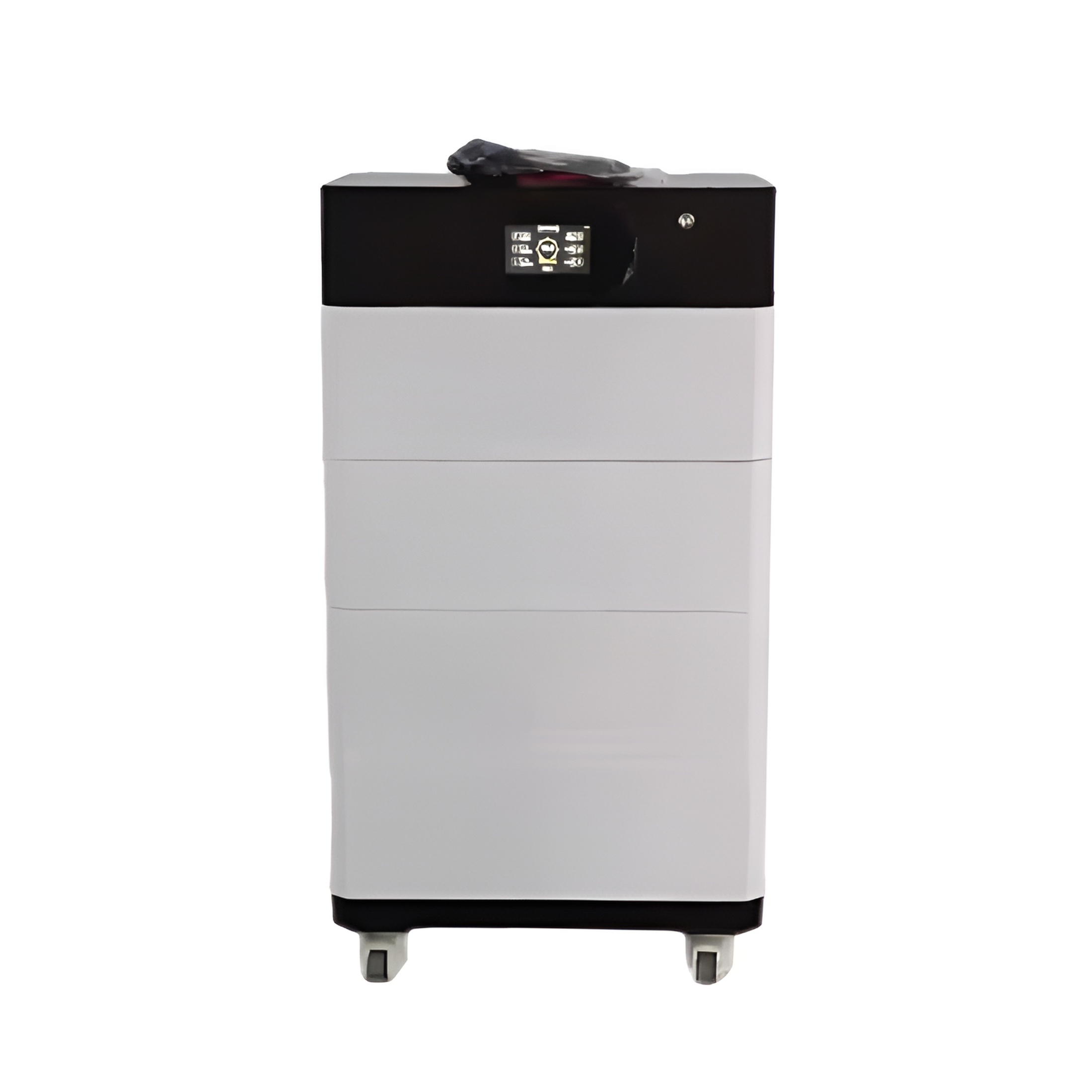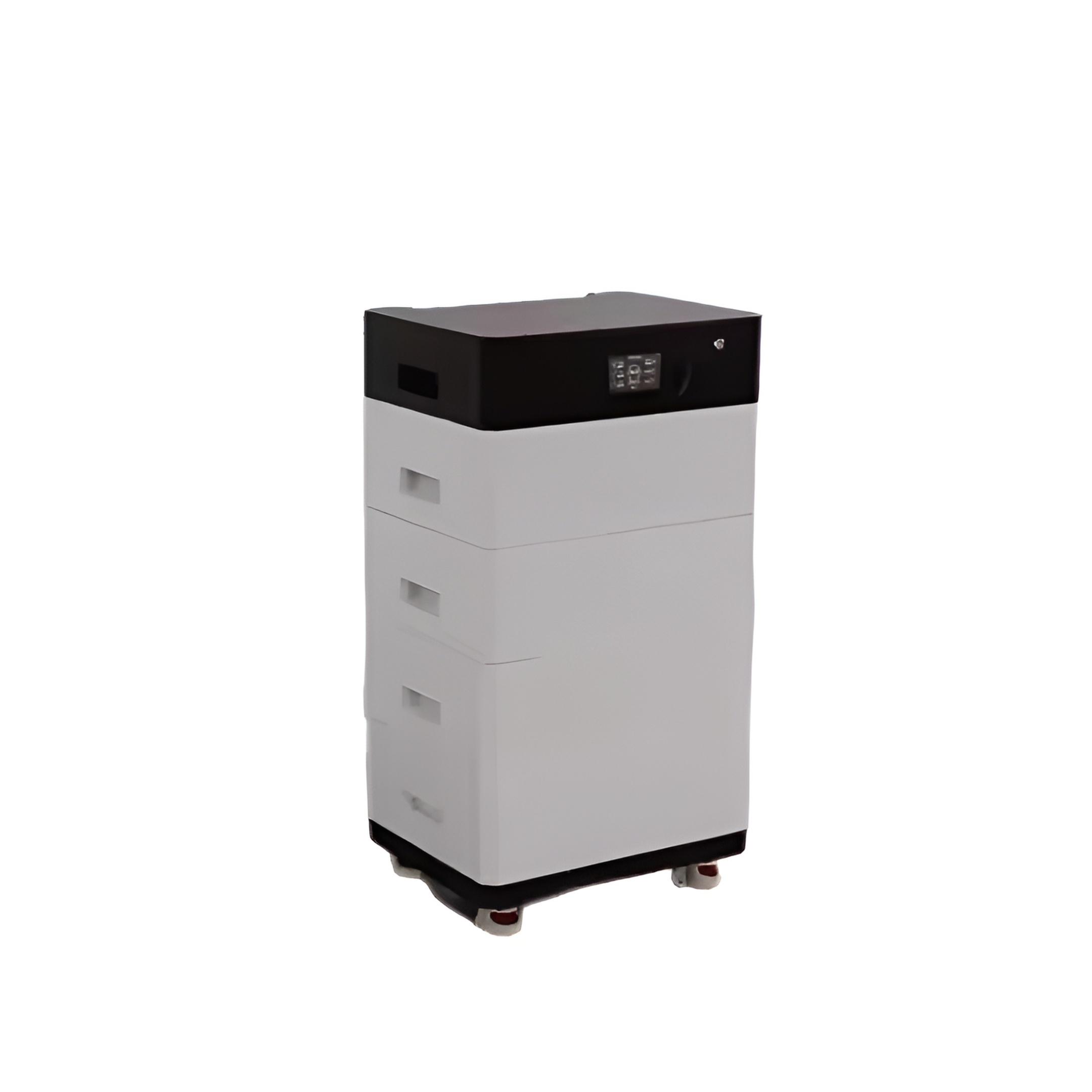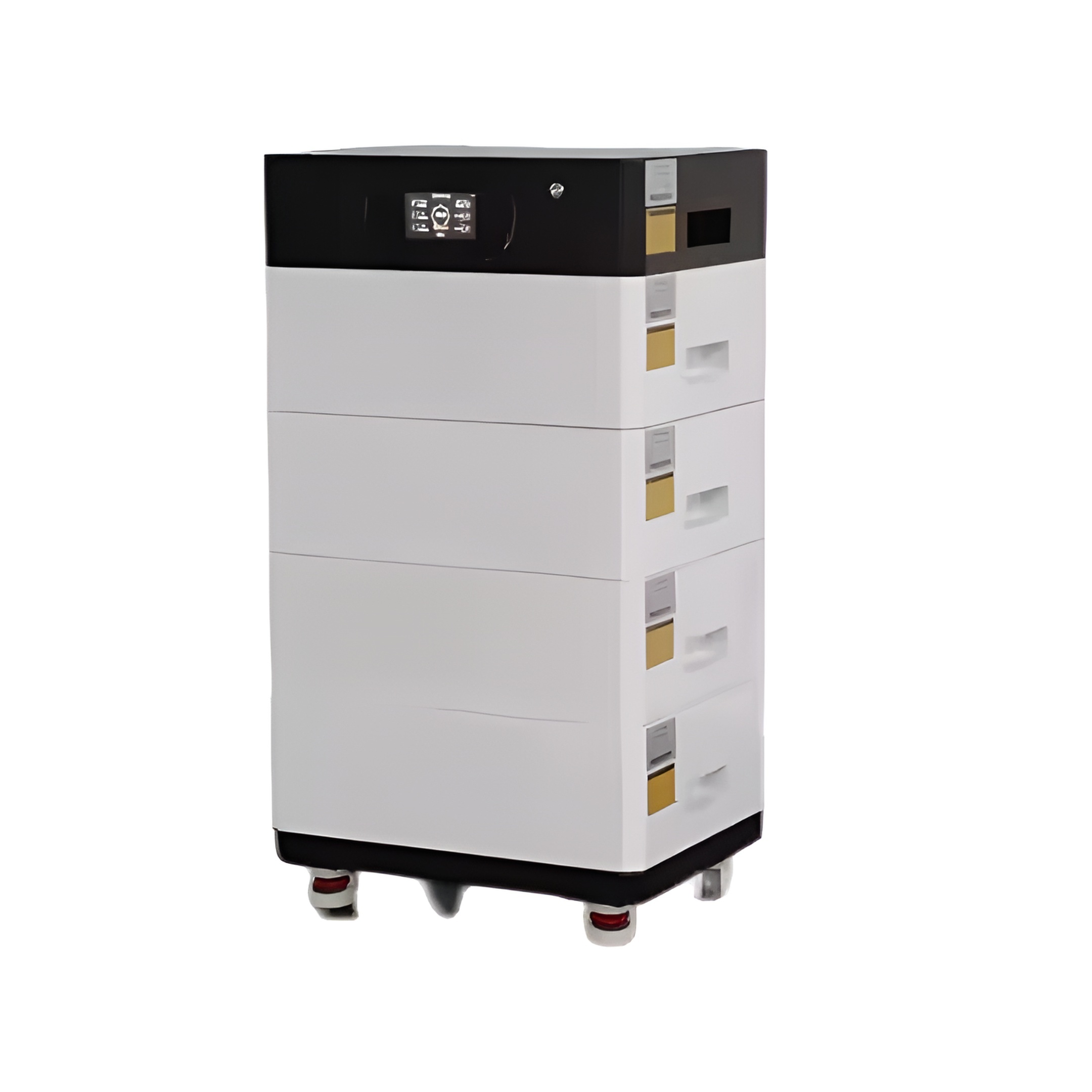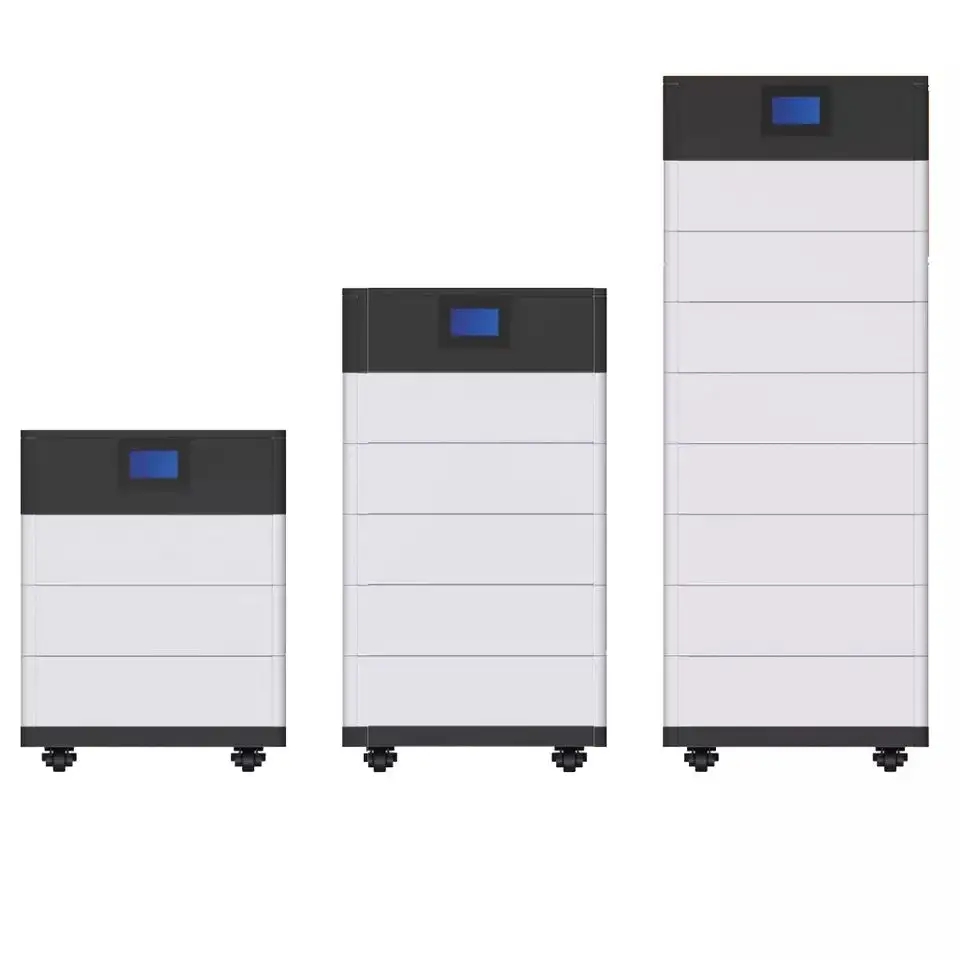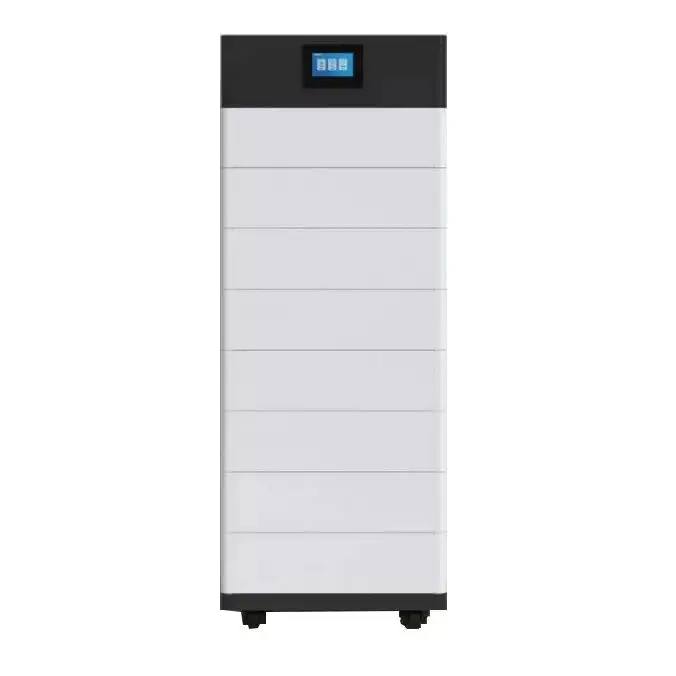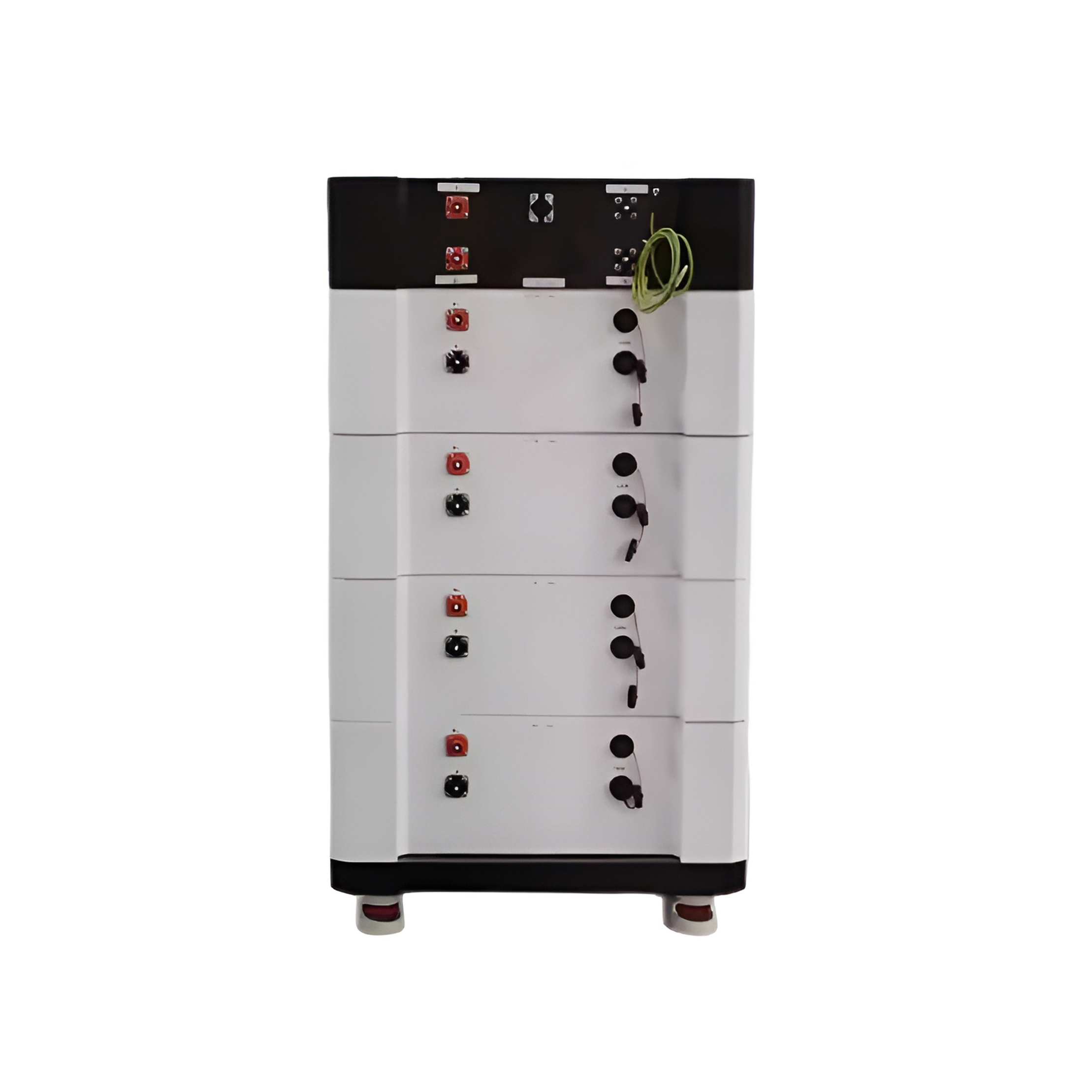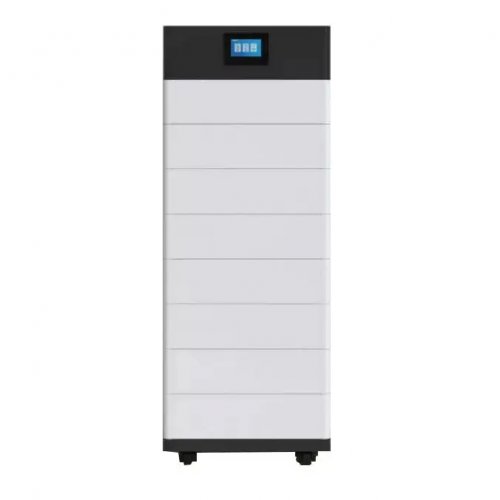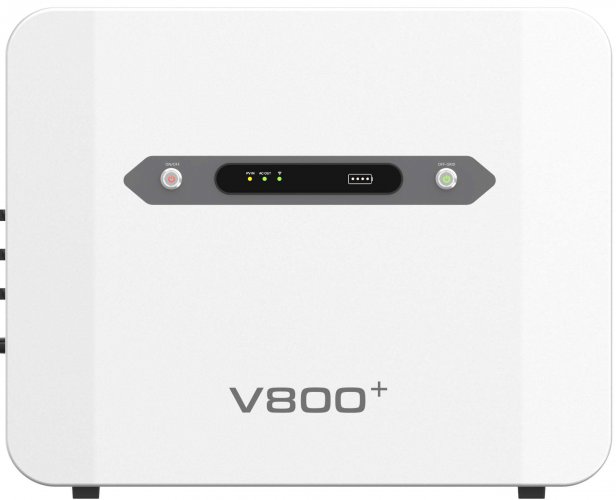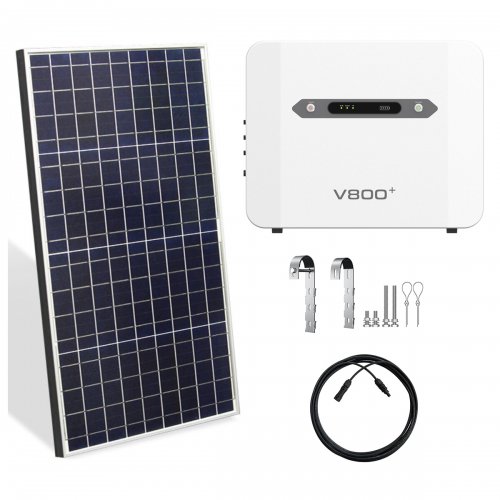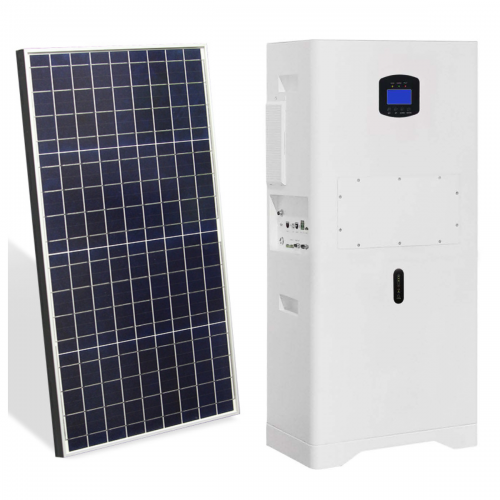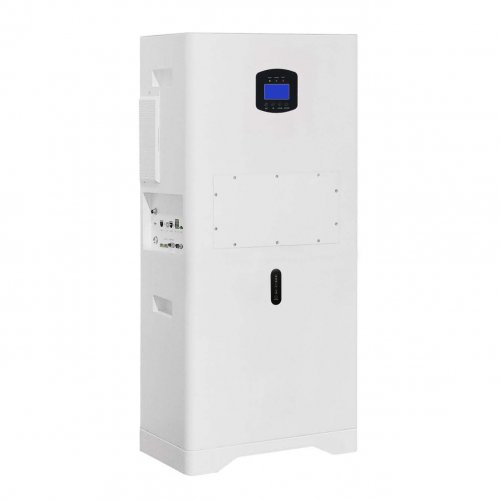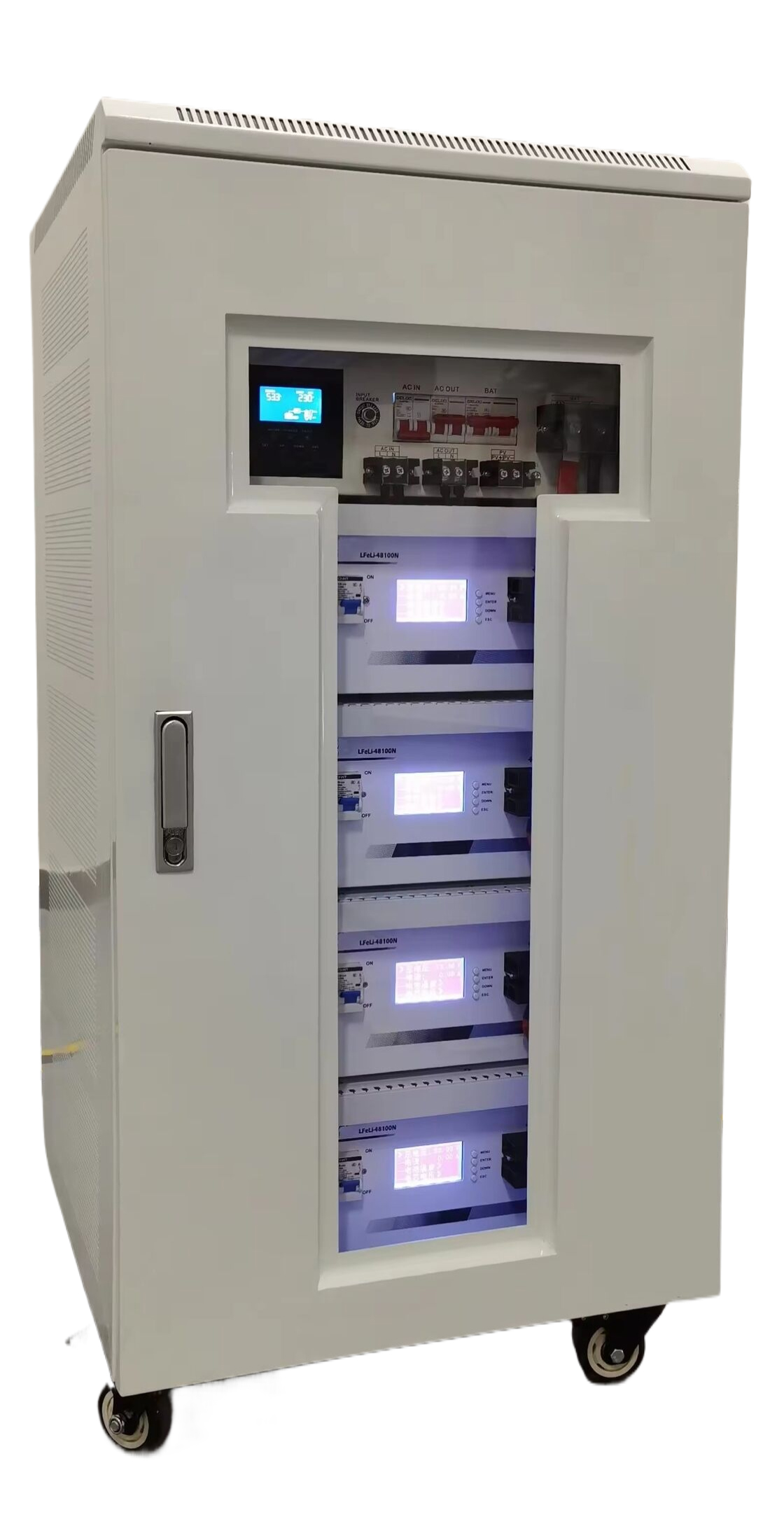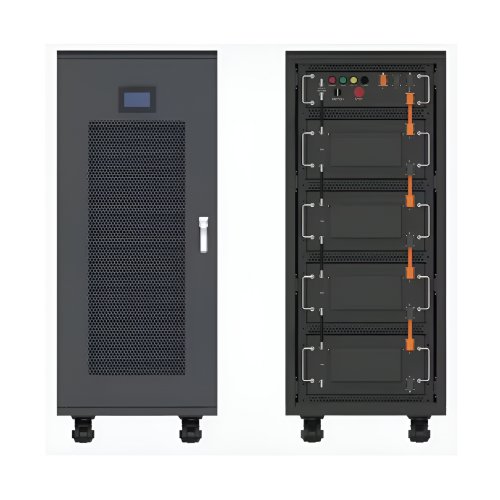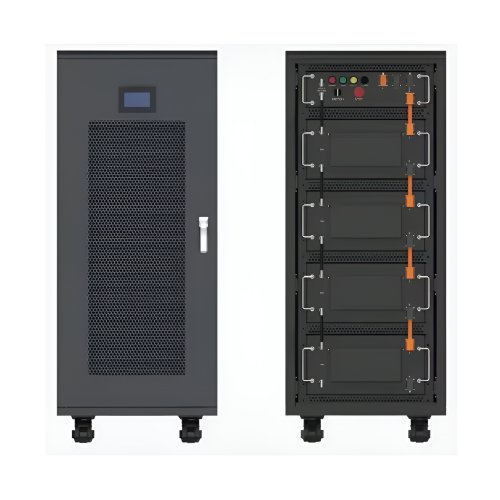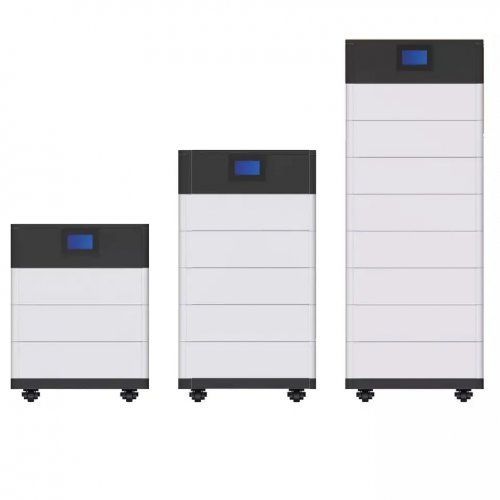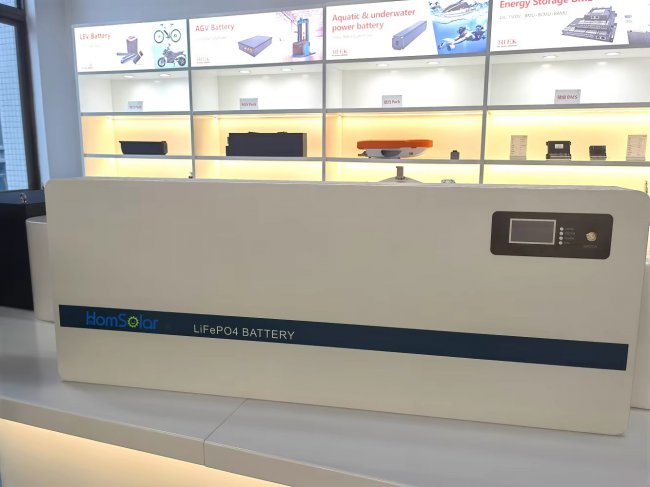A stackable energy storage system (SESS) offers a flexible and scalable solution for renewable energy storage. The modular design allows for easy expansion, and smart grid technology ensures the system operates at peak efficiency. By using a SESS in conjunction with distributed energy resources, it is possible to create a more resilient and reliable electrical grid.
What is a SESS?
A SESS is an energy storage system comprising multiple battery modules or packs that can be stacked together. The modular design allows for scalability and customization, as the number of battery modules or packs can be adjusted to meet the specific needs of a particular application. This makes a SESS an ideal solution for various applications, from residential to industrial and utility-scale energy storage.
The battery modules or packs in a SESS are usually made up of lithium-ion batteries known for their high energy density, long cycle life, and low self-discharge rates. However, other types of batteries, such as lead-acid batteries and LiFePO4 batteries, can also be used in a SESS.
What are the Benefits of Using a SESS?
One of the main benefits of using a SESS is the flexibility it provides. The modular design allows for easy customization and scalability, which means that the energy storage system can be adjusted to meet the specific needs of a particular application. This makes a SESS an ideal solution for applications that require a high level of flexibility, such as microgrids, off-grid systems, and electric vehicle charging stations.
Another benefit of using a SESS has improved grid stability. By providing a reliable and stable energy source, SESSs can help reduce the impact of intermittent renewable energy sources such as solar and wind on the grid. This can help improve grid stability and reliability, essential for ensuring a stable and secure power supply.
How Does the Modular Design of Stackable Energy Storage Systems Improve Flexibility?
The modular design of a SESS allows for greater flexibility in energy storage. Using multiple battery modules or packs that can be stacked together, the energy storage system can be customized to meet the specific needs of a particular application. This allows for easy scalability and customization, which is essential for applications that require a high level of flexibility, such as microgrids, off-grid systems, and electric vehicle charging stations.
What are Stackable Batteries?
Stackable batteries can be stacked together to form a larger battery system. These batteries can be customized to meet the specific needs of a particular application. The modular design of stackable batteries allows for easy scalability and customization, which is essential for applications requiring high flexibility.
What Types of Batteries are Used in Stackable Energy Storage Systems?
A SESS typically uses lithium-ion batteries, known for their high energy density, long cycle life, and low self-discharge rates. Lithium-ion batteries are also lightweight, making them ideal for applications that require portability, such as electric vehicles. Other types of batteries, such as lead-acid batteries and LiFePO4 batteries, can also be used in a SESS.
How Can Stackable Energy Storage Systems Support the Integration of Renewable Energy Sources?
A SESS can support the integration of renewable energy sources by providing a reliable and stable energy source. By storing excess energy generated by solar panels or wind turbines, a SESS can help to reduce the impact of intermittent renewable energy sources on the grid. This can help improve grid stability and reliability, essential for ensuring a stable and secure power supply.
What are Some Examples of Real-World Applications of Stackable Energy Storage Systems?
There are many real-world applications of SESSs, ranging from residential to industrial and utility-scale energy storage. One example of a residential application is using a SESS in homes with solar panels. By storing excess energy generated by solar panels during the day, homeowners can use the stored energy to power their homes at night, reducing their reliance on the grid.
Another example of an industrial application is using a SESS in microgrids. Microgrids are small-scale power grids that can operate independently of the main power grid and often incorporate renewable energy sources such as solar and wind. Using SESSs, microgrids can store excess energy generated by renewable sources and use it to provide power when renewable sources are unavailable.
Utility-scale energy storage is another important application of a SESS. These systems can provide grid-scale energy storage, which is essential for balancing the supply and demand of electricity on the grid. By storing excess energy during times of low demand and releasing it during times of high demand, a SESS can help to stabilize the grid and prevent blackouts.
HomSolar Stackable Energy Storage System (SESS):
Built-in inverter & MPPT controller with LiFePO4 Battery
Stackable Home Energy Storage System is a PLUG & PLAY system with a flexible modular design with no extra cables, which is safe, long life span and has good performance. They apply to all home storage systems. Each set of systems contains 1 set 5KV inverter up to 5 battery modules in parallel connection and achieves usable capacity between 5.12 to 25.6 kWh.
Our advantages:
* PLUG & PLAY Convenient and flexible
* Modular design Easy installation and compact, without extra cables
* Advanced BMS protection functionality
* Adopt high safety, long life, excellent performance LiFePO4 battery
* Multiple communications including RS485, CAN
* OEM Supported with low MOQ
Customized/OEM/ODM Service
HomSolar Supports Lifepo4 battery pack customization/OEM/ODM service, welcome to contact us and tell us your needs.
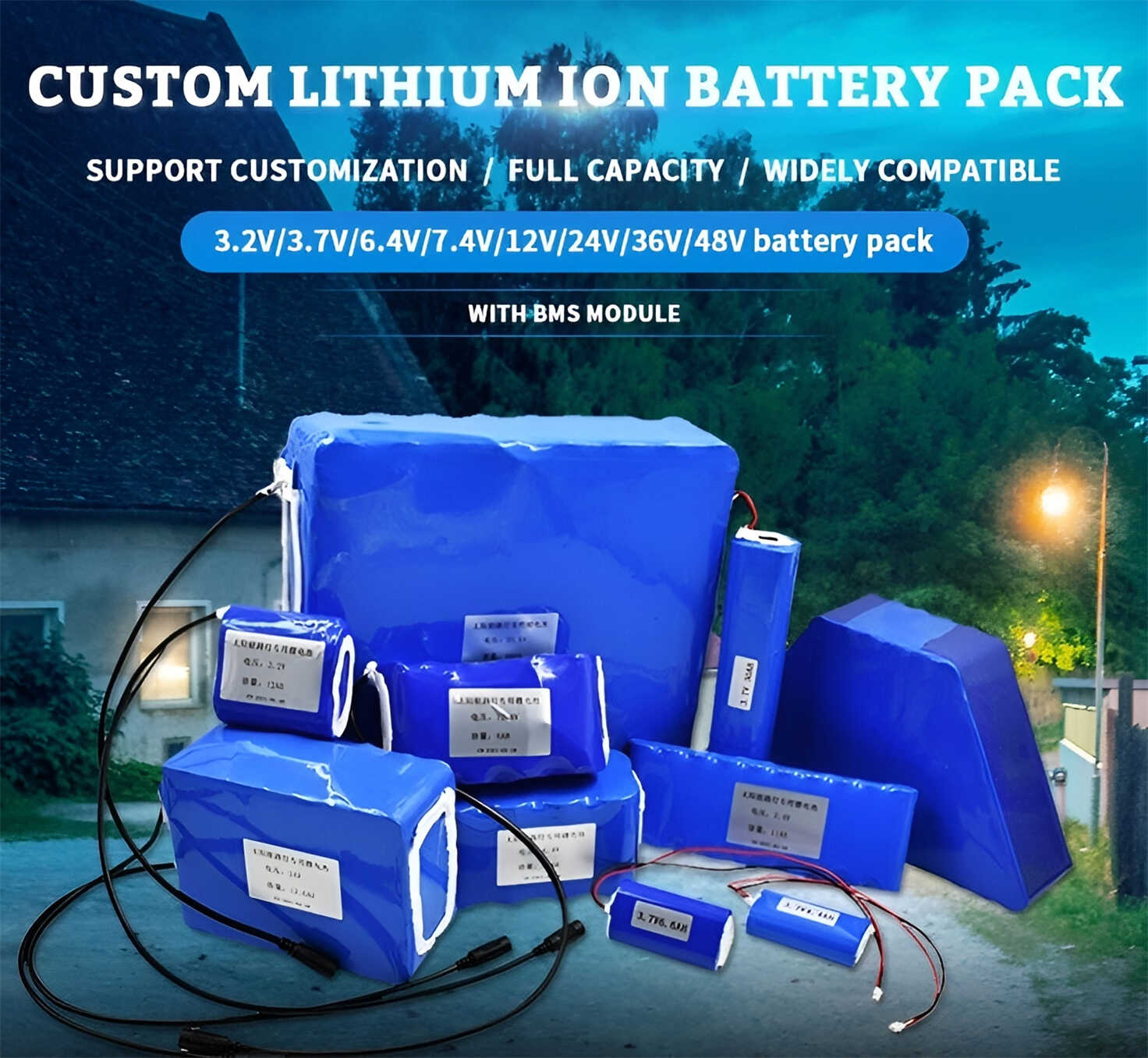

HomSolar: Your One-stop LiFePO4 Battery Pack & ESS Solution Manufacturer
Our line of LiFePO4 (LFP) batteries offer a solution to demanding applications that require a lighter weight, longer life, and higher capacity battery. Features include advanced battery management systems (BMS), Bluetooth® communication and active intelligent monitoring.

Customised Lithium Iron Phosphate Battery Casing
ABS plastic housing, aluminium housing, stainless steel housing and iron housing are available, and can also be designed and customised according to your needs.

HomSolar Smart BMS
Intelligent Battery Management System for HomSolar Energy Storage System. Bluetooth, temperature sensor, LCD display, CAN interface, UART interface also available.
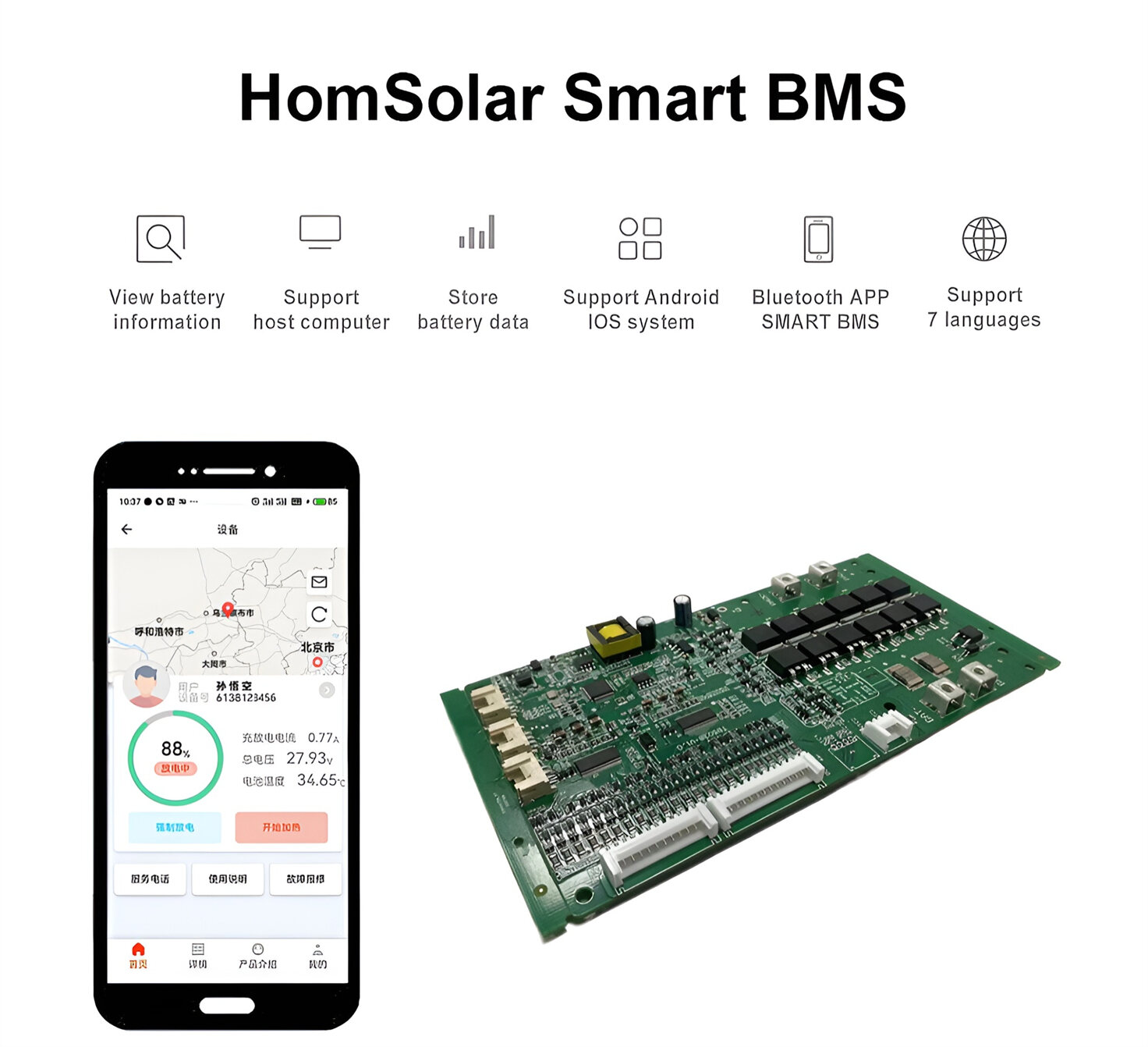

Terminals & Plugs Can Be Customized
A wide range of terminals and plugs can be customised to suit the application needs of your battery products.

Well-designed Solutions for Energy Storage Systems
We will design the perfect energy storage system solution according to your needs, so that you can easily solve the specific industry applications of battery products.



About Our Battery Cells
Our energy storage system products use brand new grade A LiFePO4 cells with a battery lifespan of more than 4,000 charge/discharge cycles.



Applications in Different Industries
We supply customized & OEM battery pack, assemble cells with wiring, fuse and plastic cover, all the cell wires connected to PCB plug or built BMS.
Applications: E-bike, Electric Scooter, Golf Carts, RV, Electric Wheelchair, Electric Tools, Robot Cleaner, Robot Sweeper, Solar Energy Storage System, Emergency Light, Solar Power Light, Medical Equipment, UPS Backup Power Supply.
We can provide you with customized services. We have the ability to provide a vertical supply chain, from single cells to pack/module and to a complete power solution with BMS, etc.



